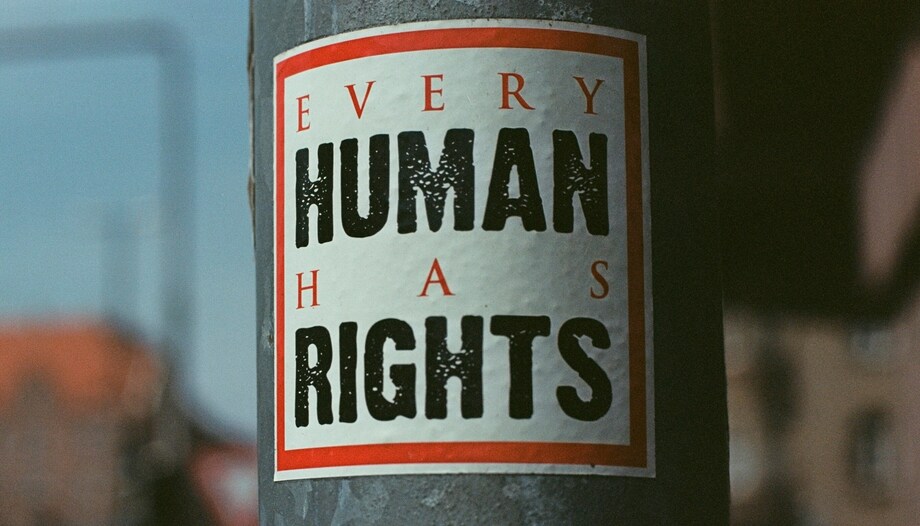Much has been said about the statement "Dignitas Infinita" of the Dicastery for the Doctrine of the Faith, focusing especially on the issues of the fight against gender ideology, the repeated no to abortion and euthanasia, and the idea of considering even social issues such as poverty as an attack on human dignity. However, there is one theme that encompasses all the others and, in fact, underlies much of the Holy See's diplomatic activity today: the question of new rights.
On the 75th anniversary of the Universal Declaration of Human Rights, the date of the document's publication, the Holy See repeatedly reaffirmed its support for those primitive rights, rooted in the very essence of the human being and on which there was a broad and unanimous consensus. After all, at the time when the Universal Declaration was drafted, in the wake of the tragedy of Nazism, there was a need for internationally recognized criteria that could defend human values.
At the same time, the Holy See did not fail to point the finger at the so-called "third and fourth generation rights", on which there is no general consensus and whose legitimacy is not very clear. Third-generation rights are those defined as the right to environmental protection and to education. Then there is the fourth generation of human rights, defined as the right to self-development, into which many of the pro-gender initiatives also fit and are triggered.
Human dignity
What does "Dignitas Infinita" say? He stresses that sometimes "the concept of dignity human rights even to justify an arbitrary multiplication of new rights", some even "contrary to those originally defined", turning dignity into "an isolated and individualistic freedom, which pretends to impose as rights certain desires and propensities that are objective".
However, the document adds, "human dignity cannot be based on merely individual criteria or identified with the psychophysical well-being of the individual alone", but "is based, on the contrary, on constitutive requirements of human nature, which depend neither on individual arbitrariness nor on social recognition".
It is necessary, we read again, a "concrete and objective content based on common human nature" to certify the new rights.
New rights
The subject is widely debated. Reference to these new rights, in different forms, can be found in various international documents, where, for example, gender terminology is also introduced in issues related to the reception of migrants, or humanitarian assistance. Interestingly, Pope Francis already addressed the topic in his speech to the Diplomatic Corps accredited to the Holy See in 2018.
On that occasion, the Pope had observed that "following the social upheavals of the 1968 movement, the interpretation of certain rights has gradually changed to include a multiplicity of new rights, not infrequently in conflict with each other".
This, the Pontiff continued, created the "somewhat paradoxical" risk that "in the name of human rights themselves, modern forms of ideological colonization of the strongest and richest are established to the detriment of the poorest and weakest."
The Holy Father went further, stressing that not only do war or violence violate the rights to life, freedom and the inviolability of every human person, but there are more subtle forms, such as the discarding of innocent children even before they are born. For this reason, beyond the commitment to peace and disarmament, the Pope called for a response that also pays new attention to the family.
The position of the Holy See
The point is that the Holy See tries to contemplate all scenarios in a way that attempts to encompass all current problems.
What is the origin of the Holy See's approach to the new rights? From the fact that they bring a new anthropological vision that moves away from the vision of the Christian proposal, and deprives the person of his three dimensions of relationship with himself, relationship with God and relationship with others.
The Holy See sees in it the risk of destroying the dignity of the human being. Cardinal Pietro Parolin explained in an interview in 2022 that "it is not a question of an ideological struggle of the Church. The Church deals with these issues because it has care and love for man, and defends the human person in his dignity and in his deepest choices. It is really about speaking of rights, and speaking of them with love for man, because we see the drifts that arise from these choices".
It is an uphill battle for the Holy See, which is not only not listened to, but even creates discomfort every time it opposes the spread of the new rights. Thus, the document "Dignitas Infinita" puts one more point on the question, and provides the diplomats of the Holy See with a new tool to address the issue of the new rights. It is certainly the question of the future, but also of the present.







